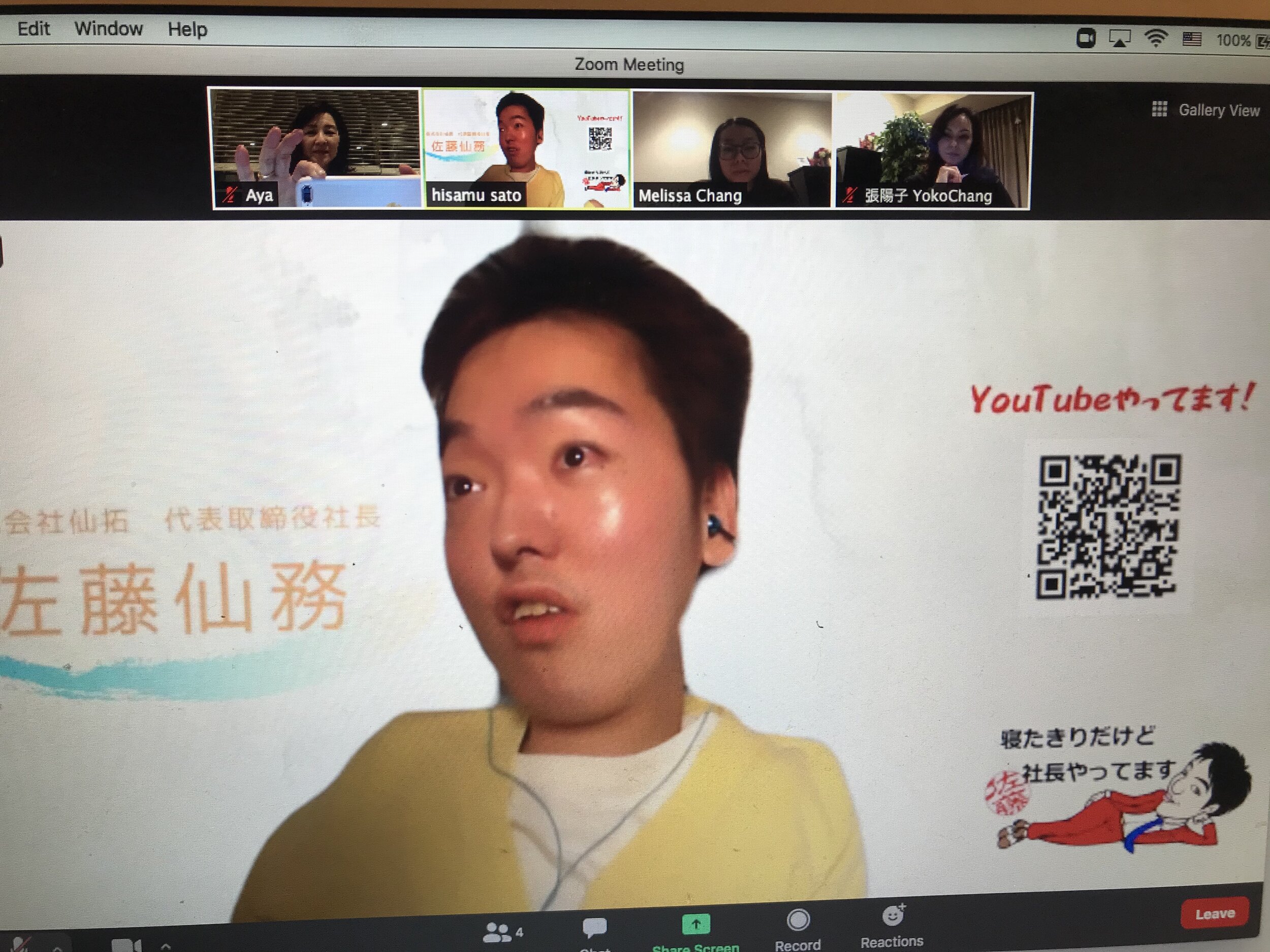Hisamu Sato:「寝たきり社長」(Bedridden CEO)
I had the privilege to interview Hisamu Sato-san, who also goes by “寝たきり社長”, which translates to '“Bedridden CEO” in English. Sato-san has spinal muscular atrophy (SMA), but that does not hinder him from becoming a successful entrepreneur and the CEO of his own company.
To learn more about Sato-san, visit:
His blog: hisamu.com
Facebook: https://www.facebook.com/hisamu.sato
Instagram: https://www.instagram.com/s.hisamu/
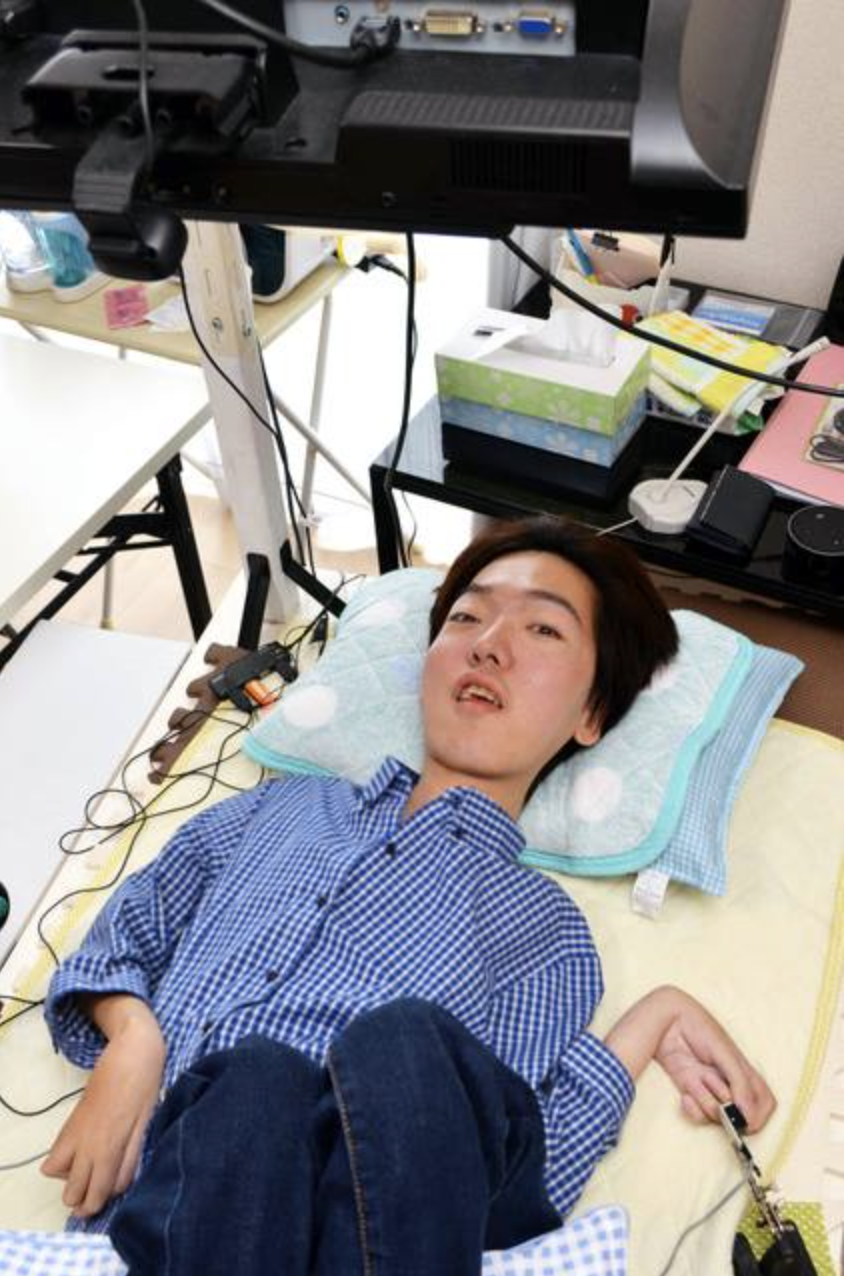
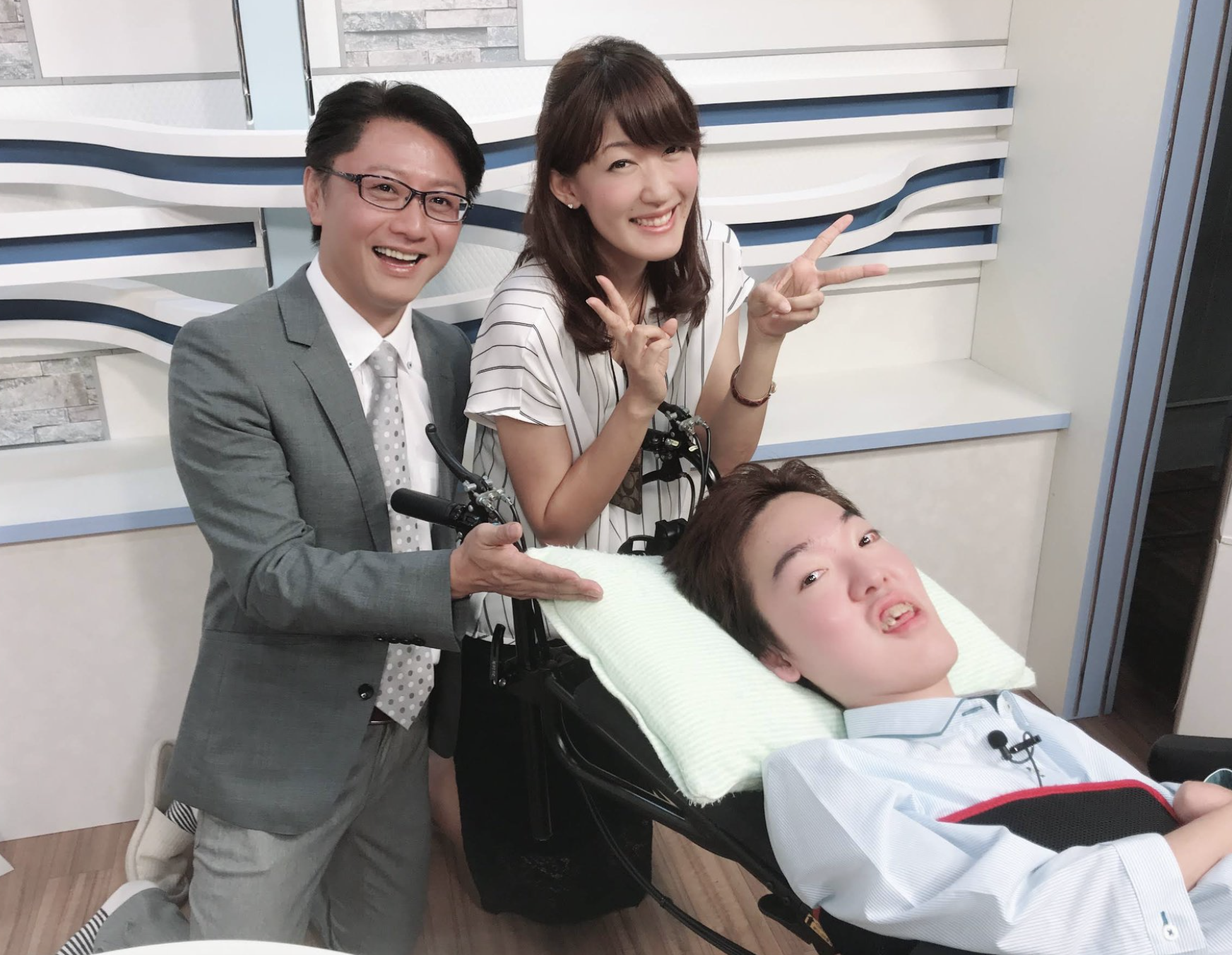
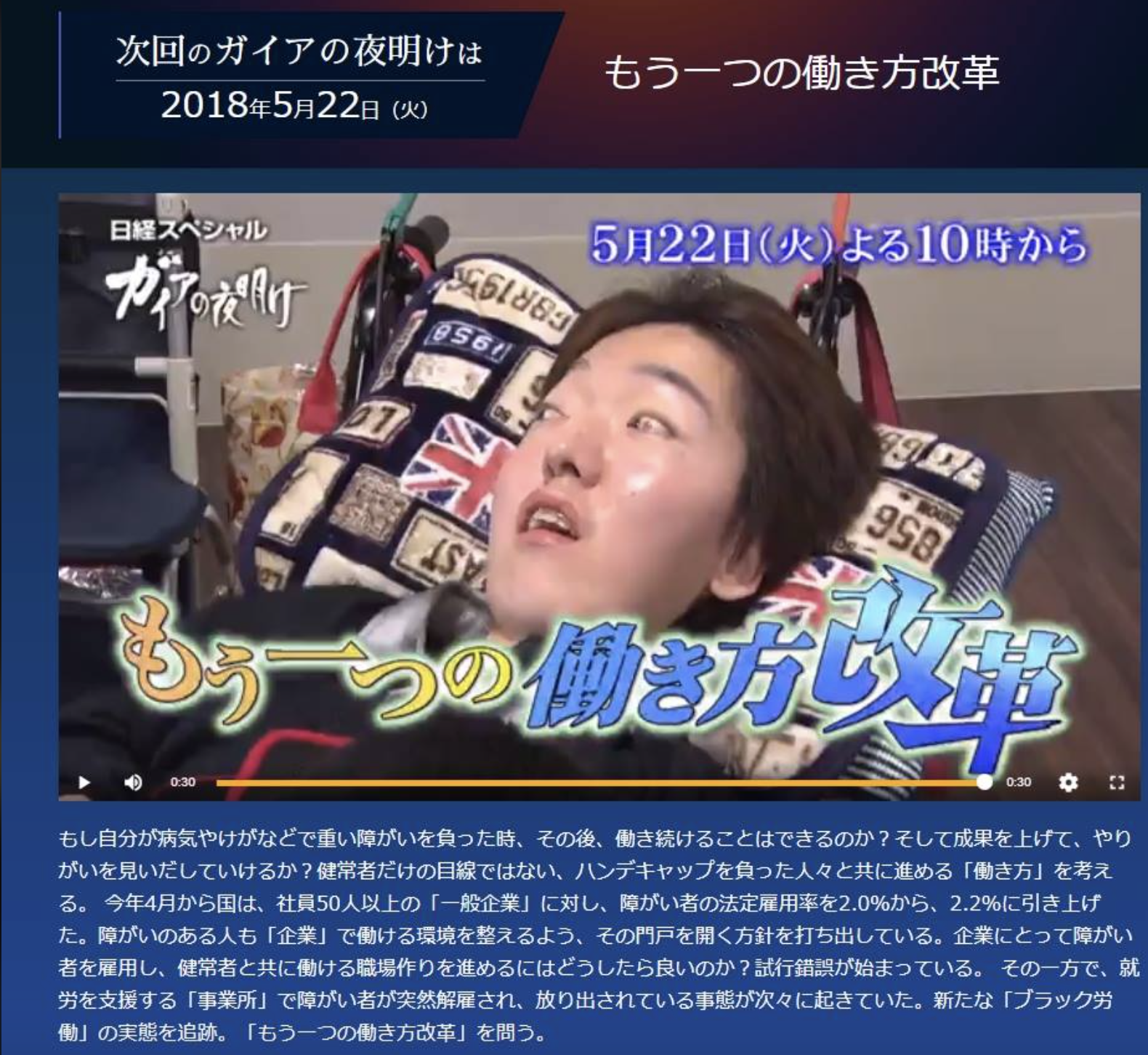
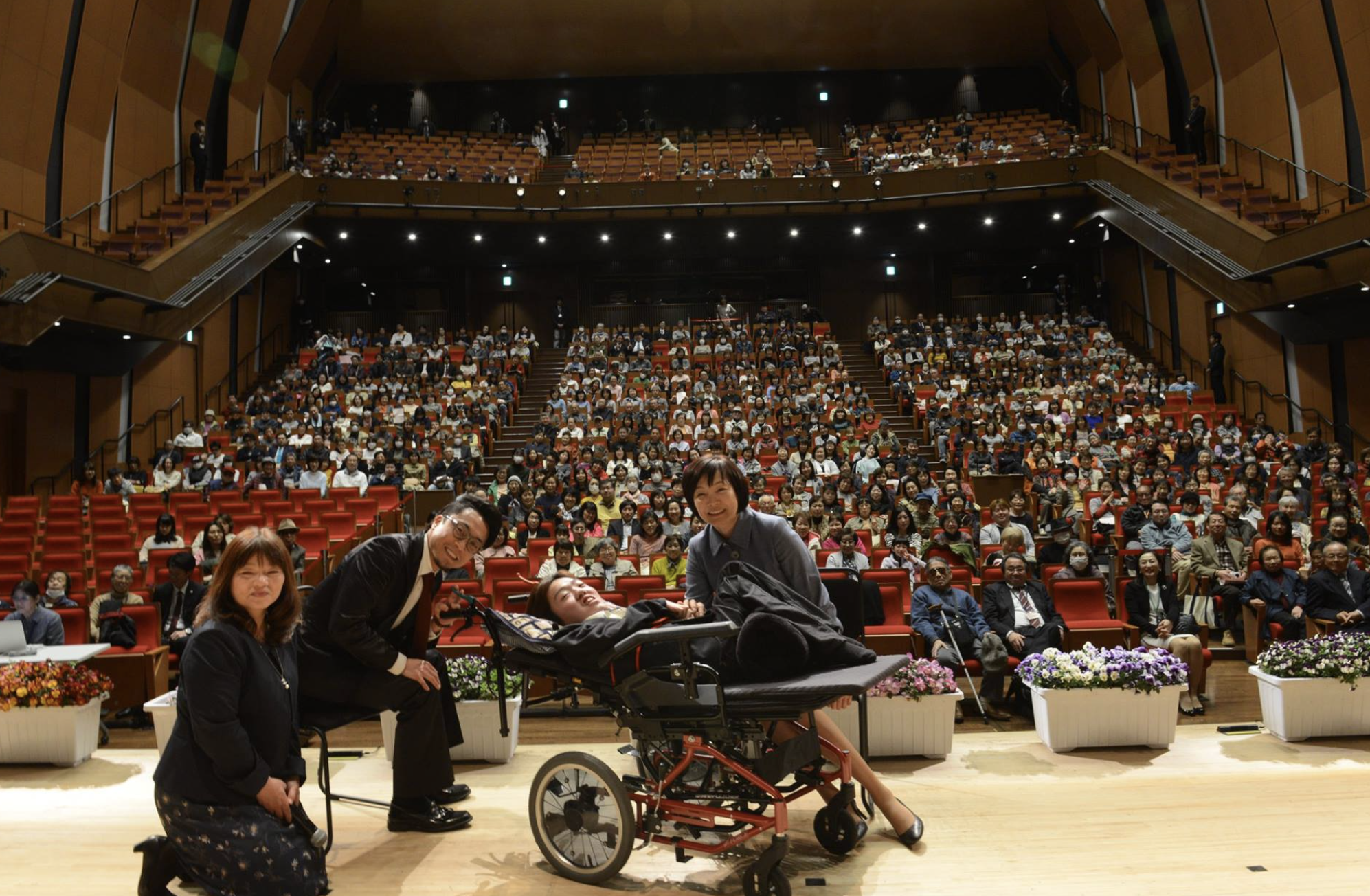
What was the biggest challenge you faced growing up?
I didn't have access to technology throughout my time in middle school and high school as I do now. Growing up, I lived in a generation when technology wasn't introduced yet.
What was it like going to a special needs school?
A vivid memory that I have is when I formed a band with my friends and teachers and performed at my school. To me, that was very memorable.
I did face some challenges going to a special needs school. If you take a regular school, for example, the teacher to student ratio is about 1:40. However, at a special needs school, the teacher to student ratio is about 1:3. When I didn't get along with a teacher, it was difficult for me to deal with them for a whole year. At a special needs school, the student-teacher relationship is a lot deeper and more meaningful.
What are you most thankful for in life?
I am very thankful for the people around me. I'm also grateful for technology and the LIVES project sponsored by Hands on Tokyo. If I were born 50 or 60 years ago, I would not have access to the Internet or advanced technology as I do now. The eye-tracking feature and artificial intelligence allow me to work and communicate with people through my computer. Without social media, I wouldn't be able to use my freedom and allow others to learn about my story. Through social media, I've met amazing people, and that's what I am most grateful for.
What have you learned throughout the process of starting your own business?
I've learned numerous lessons while doing business. The most important lesson I've learned starting my own business is trust. For a long period, I wondered how others could earn my trust. Throughout the years, I've learned that trust can be defined as how many promises you've made with people. I believe this concept applies to personal and business lives.
How do you motivate yourself? What's your inspiration?
This might be because of my innate personality, but I really enjoy expressing my feelings and thoughts on social media. When I write my thoughts and feelings, I know that others acknowledge my presence, which motivates me every day. Because people know who I am, I can connect with people, and seek new opportunities.
What are goals that you have?
As you know, I am a person with a disability. A life of a person without a disability usually goes like this: you go to school, you go to work, you start a family, and you eventually leave this world. Innumerable events happen in life, but a person with a disability only has a limited number of options when making decisions in life. I never thought about becoming a CEO when I was younger. However, most companies don't want to hire people with severe disabilities. It was then that I decided to go down the path of becoming a leader: the CEO of my own company. My goal is for people in our future generations to pursue what they love without boundaries that would stop them from achieving their dreams. I hope for a generation that provides limitless options for people with disabilities.
What are some steps Japan can take to raise its employment rate among people with disabilities?
Before the pandemic, most companies required you to go to work in person. However, due to COVID-19, whether you have a disability or not, companies have switched to working remotely. If more companies start offering remote work in general, it will benefit the disability community a lot.
The Quota System is a Japanese law that requires general employers, including the government and municipal offices, to employ disabled workers in excess of the quota. My question is, how do they accurately keep track of the number of people with disabilities entering the work field? Besides, companies want to employ full-time employees with disabilities for a fixed salary and working hours. The issue is that most people with disabilities can't work every day of the week from early in the morning to late at night. Instead of paying someone by hours, I think companies should focus more on what the employees accomplish while working. This way, companies, and employees can adjust their working hours based on their abilities and schedules.
What do you believe is the best way for people to educate themselves on the disability community?
First, I think people without disabilities and people with disabilities should be more involved in each other's lives. They should seek more opportunities to cooperate in various activities.
Second, in Japanese society, working is defined as independence, and people have high respect for you if you work. If the employment rate among people with disabilities increases, more people with disabilities can pay their taxes. This will educate people in our community that people with disabilities can work, ultimately heading toward a non-discriminatory society.
日本語版
Q1: 育ち盛りで(挑戦)チャレンジしたことは何ですか?
電動車椅子でサッカーに参加した。
中学生・高校生の時、まだタブレットが普及されていない時代だったのでとてももどかしいなか学校生活を過ごしました。
Q2: 養護学校で一番思い出に残っていることは何ですか?(良いこと、悪いこと両方)
良い】スポーツにチャレンジしたこと(電動車椅子)
バンドを組んでみんなの前でバンド演奏したことです。
悪い】養護学校は少人数の学校なので先生との関係も密接です。
そのような環境で「(相性が)合わない」先生が担任になると1年間お世話に
ならなくてはならないので、そこは大変でした。
Q3: 佐藤社長にとって人生で一番有難いことは何ですか?
周りの人の存在は勿論有難いですが、テクノロジーは本当に有難い。
もし、50年前に生まれていたら、今のようにはなっていなかった。
現在は目の操作を使ってコンピューターを作動していが、
昔だったらこんなことははできなかった。
SNSがあったからこそ色々な人と出逢えました。
Q4: 佐藤社長がビジネスで学んだことは何ですか?
『信頼』=約束を守った数
仕事でも、プライベートでも色々な人と関わる中で、
相手との約束を守るということが本当に大切だと学びました。
Q5: 佐藤社長にとってモチベーションを上げることは何ですか?
自分の考えていること、思っていることを発信することが好きなので
SNSやTVで自分の書いた文章・自分の存在を知ってもらうこと。
誰かに知ってもらえるからこそ繋がる。
Q6:佐藤社長のこれからの目標は何ですか?
とても抽象的かもしれないけれど、
学校いって、結婚して、子供を産む人が世の中には多い。
その中で障害を持った人はそういうライフイベントを選べる選択肢が少ない。
選択肢が増えて欲しいと思う。
会社を起こそうなんて思ってもみなかった。
就職したいと思っても、重度な障害者は雇ってもらえない。
だから起業して社長になった。
これからの時代は障害を持った人も色々と選べる社会になって欲しい。選択肢を増やして欲しい。
Q7: 障害者の就職率はどうやったら上がると思いますか?
障害者が働くとなった場合、会社まで通わなくてはならない企業が多い。
コロナ禍のおかげで「テレワーク」が普及したけれども、
もっとテレワークが浸透すれば身体障害者が活躍できると思う。
障害者雇用法がありますが、どうしたら雇用率が上がるかというと
毎日フルタイムで働けない障害者が多いから「1時間幾ら」ではなく、
仕事の内容や成果報酬にすれば体調や予定に合わせて障害者が働ける。
Q8: どのような教育をしたら日本人が障害者のコミュニティーを理解できると思いますか?
障害者、健常者、分け隔て無くお互いが関わり合えるようになった方がいいと思う。
世の中の人は健常者・障害者に関わらず
「働いている人を認める」「働いてこそ一人前」という傾向があります。
障害者がそれぞれの働き方で働いて、社会に関わって障害者も働いて稼いで
税金を収めている、と知ってもらえるとお互いの立場が公平になってくると思います。
Thank you Sato-san for taking your time to share your story! 佐藤さん、お時間をいただき、ありがとうございます!
Also, a big thank you to Aya Higa for organizing this call.


